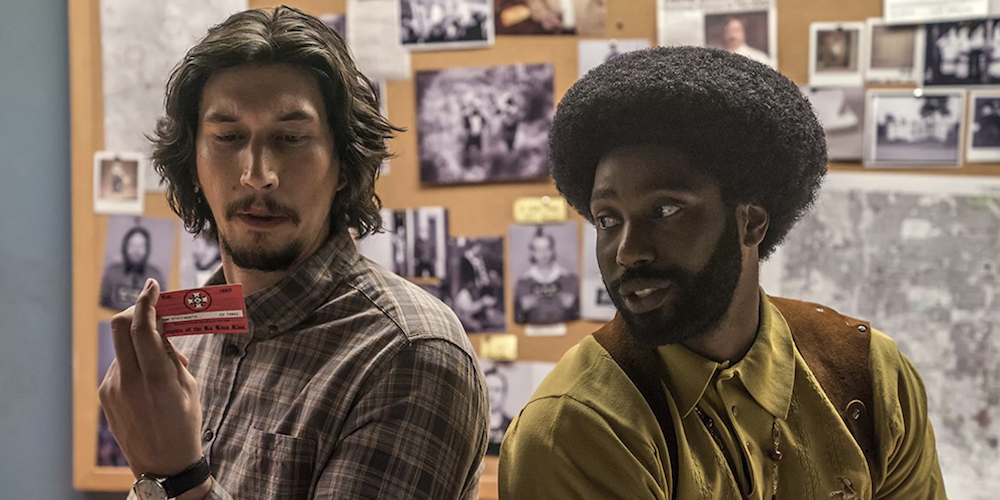
 'BlacKkKlansman' is a fun, thought-provoking depiction of what it means to be black and American
'BlacKkKlansman' is a fun, thought-provoking depiction of what it means to be black and American
Opening with a Confederate-sympathising clip from 1939’s Gone with the Wind before transitioning into a bitingly funny blooper reel from a white supremacist propaganda film, Hollywood’s shameful history of fanning the flames of prejudice has a consistent and unsettling presence in Spike Lee’s stylish new biopic.
Though the blackface caricatures of early 20th century cinema may no longer be an acceptable sight in our modern blockbusters, BlacKkKlansman makes the compelling case that such old-fashioned and obvious forms of bigotry haven’t vanished from our culture but have merely evolved, taking on freshly appealing forms to draw in each new generation of angry whites. That Lee’s film manages to convey all this while still delivering an amusing and accessible buddy cop flick makes this easily one of the most recommendable releases of recent months.
Just as racism is shown to sneakily infiltrate popular culture, black Detective Ron Stallworth (John David Washington) manages to work his way into a local Ku Klux Klan faction using his very own form of ‘whiteface’. If the Colorado rookie is the director of this undercover operation, then Jewish Detective Flip Zimmerman (Adam Driver) is his actor, adopting Ron’s name as he fraternises with these secretive and potentially dangerous supremacists.

As Ron and Flip work their way further into the group, we see how the Klan of 1979 was already making some shrewd PR manoeuvres that would ultimately see its members transition from white hoods and cross-burnings to politics and superficial modernity. Though ‘the organisation’, as it’s sometimes euphemistically called, has its share of stereotypical dumb rednecks, more unnerving is the group’s Grand Wizard David Duke (Topher Grace), who’s a perfectly civil and mild-mannered guy until the moment that Ron puts his arm around him when posing for a photo.
Despite dealing with some heavy themes, Lee’s dynamic and technically accomplished direction grants humour and life to the drama. Though the film isn't exactly subtle in its messaging, it’s also too downright enjoyable to feel overly preachy (one or two moments of heavy-handed Trump foreshadowing aside). It’s only in a last-minute montage of the Unite the Right rally in Charlottesville that Lee goes into full serious mode, leaving audiences with one final gut-punch that effectively hits home his point.
The most telling moment in this real-world footage is an excerpt from Trump’s infamous ‘violence on both sides’ speech – a false equivalence that Lee spends much of BlacKkKlansman rebuking. But while the film makes a clear case that the civil rights movement is in no way the black equivalent of white nationalism, and vice versa, the reality remains that Ron Stallworth is treacherously caught between these two worlds as he struggles with his warring identities of ‘black’ and ‘American’. It’s a conflict that remains unresolved by the end of Lee’s film, but he sure gives you a fun and thought-provoking ride exploring this centuries-old tension.
BlacKkKlansman is in UK cinemas now!
